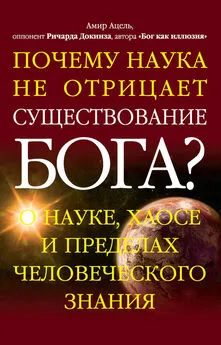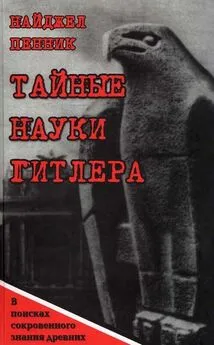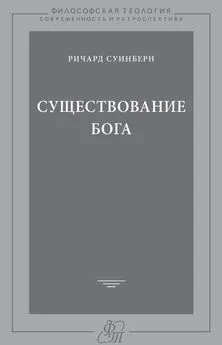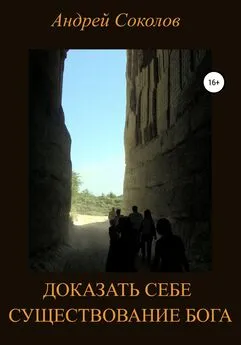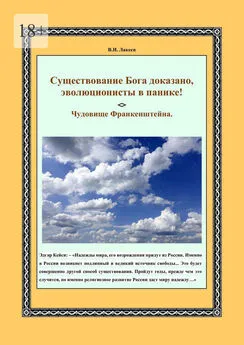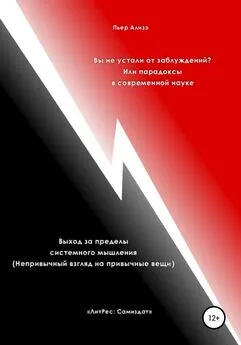Амир Ацель - Почему наука не отрицает существование Бога? О науке, хаосе и пределах человеческого знания
- Название:Почему наука не отрицает существование Бога? О науке, хаосе и пределах человеческого знания
- Автор:
- Жанр:
- Издательство:Array Литагент «Аттикус»
- Год:2015
- Город:М.
- ISBN:978-5-389-09833-6
- Рейтинг:
- Избранное:Добавить в избранное
-
Отзывы:
-
Ваша оценка:
Амир Ацель - Почему наука не отрицает существование Бога? О науке, хаосе и пределах человеческого знания краткое содержание
Основой для этой книги послужили личные беседы автора с 11 нобелевскими лауреатами, выдающимися физиками, биологами, антропологами и психологами, а также ведущими богословами и духовными лидерами. Обобщая современные данные многих исследований, Ацель рассказывает о том, что на самом деле знает наука XXI века о существовании Бога.
Почему наука не отрицает существование Бога? О науке, хаосе и пределах человеческого знания - читать онлайн бесплатно полную версию (весь текст целиком)
Интервал:
Закладка:
Einstein Albert, Lorentz A., Weil Hermann, Minkowski H. The Principle of Relativity. N. Y.: Dover, 1952.
Einstein Albert. Relativity: The Special and the General Theory. N. Y.: Crown, 1961.
Entanglement: The Greatest Mystery in Physics. N. Y.: Basic Books, 2002.
Ever Since Darwin: Reflections in Natural History. N. Y.: Norton, 1992.
Ferguson Kitty . Stephen Hawking: An Unfettered Mind. N. Y.: Palgrave/Macmillan, 2012.
Feynman Richard P. QED: The Strange Theory of Light and Matter. Princeton, NJ: Princeton University Press, 1985.
Fölsing Albrecht. Albert Einstein. N. Y.: Penguin, 1998.
Frank Philipp. Einstein: His Life and Times. Translated by George Rosen. N. Y.: Da Capo, 1989.
Freeman Charles . A.D. 381: Heretics, Pagans, and the Dawn of the Monotheistic State. N. Y.: Overlook, 2008.
French A. P., Taylor Edwin F . An Introduction to Quantum Physics. N. Y.: Norton, 1978.
Freund Jürgen. Special Relativity for Beginners. Singapore: World Scientific, 2008.
Gapaillard Jacques. Et pourtant elle tourne!: Le mouvement de la Terre. Paris: Seuil, 1993.
Geroch Robert. Mathematical Physics. Chicago, IL: The University of Chicago Press, 1985.
Gilmore Robert. Lie Groups, Lie Algebras, and Some of Their Applications. N. Y.: Dover, 2002.
Gingerich Owen. The Book Nobody Read: Chasing the Revolutions of Nicolaus Copernicus. N. Y.: Walker, 2004.
God Is Not Great: How Religion Poisons Everything. N. Y.: Twelve, 2009.
Gödel Kurt. Collected Works. Volume II, Publications 1938–1974. Edited by Solomon Feferman, et al. N. Y.: Oxford University Press, 1990.
Goldsmith Donald. Einstein’s Greatest Blunder? The Cosmological Constant and Other Fudge Factors in the Physics of the Universe. Cambridge, MA: Harvard University Press, 1995.
Gondhalekar Prabhakar. The Grip of Gravity: The Quest to Understand the Laws of Motion and Gravitation. N. Y.: Cambridge University Press, 2001.
Gould Stephen Jay. The Structure of Evolutionary Theory. Cambridge, MA: Belknap Harvard, 2002.
Greene Brian. The Fabric of the Cosmos: Space, Time, and the Texture of Reality. N. Y.: Knopf, 2003.
Guth Alan. The Inflationary Universe. N. Y.: Basic Books, 1998.
Hacking Ian. The Emergence of Probability: A Philosophical Study of Early Ideas about Probability, Induction, and Statistical Inference. Second Edition. N. Y.: Cambridge University Press, 2006.
Hajnal András, Hamburger Peter. Set Theory. N. Y.: Cambridge University Press, 1999.
Harris Sam. The End of Faith: Religion, Terror, and the Future of Reason. N. Y.: Norton, 2004.
Hawking Stephen, Ellis G. F. R . The Large Scale Structure of Space-Time. N. Y.: Cambridge University Press, 1973.
Hawking Stephen, Mlodinow Leonard. The Grand Design. N. Y.: Bantam, 2010.
Hawking Stephen . The Illustrated A Brief History of Time and The Universe in a Nutshell. N. Y.: Bantam, 2001.
Heilbron J. L. The Sun in the Church: Cathedrals as Solar Observatories. Cambridge, MA: Harvard University Press, 1999.
Heisenberg Werner. Ordnung der Wirklichkeit. Munich: R. Piper, 1989.
Hitchens Christopher . The Portable Atheist. N. Y.: Perseus, 2007.
Holton Gerald. Thematic Origins of Scientific Thought: Kepler to Einstein. Cambridge, MA: Harvard University Press, 1973.
Hooper Dan . Nature’s Blueprint: Supersymmetry and the Search for a Unified Theory of Matter and Force. N. Y.: HarperCollins, 2008.
Hoskin Michael, ed. The Cambridge Illustrated History of Astronomy. N. Y.: Cambridge University Press, 1997.
Huff Darrell. How to Lie with Statistics. N. Y.: Norton, 1954.
Isaacson Walter. Einstein: His Life and Universe. N. Y.: Simon and Schuster, 2008.
Jammer Max . Concepts of Force. Cambridge, MA: Harvard University Press, 1957. Reissued, N. Y.: Dover, 1999.
Jeffreys Harold. Theory of Probability. N. Y.: Oxford University Press, 1998 (reissue of 1939 edition).
Kaku Michio. Hyperspace: A Scientific Odyssey Through Parallel Universes, Time Warps, and the 10th Dimension. N. Y.: Oxford University Press, 1994.
Kandel Eric R. The Age of Insight: The Quest to Understand the Unconscious in Art, Mind, and Brain, from Vienna 1900 to the Present. N. Y.: Random House, 2012.
Kane Gordon, Aaron Pierce, eds. Perspectives on LHC Physics. Hackensack, NJ: World Scientific, 2008.
Kant Immanuel. Critique of Pure Reason. N. Y.: Dover, 2003.
Kautz Richard. Chaos: The Science of Predictable Random Motion. Oxford, UK: Oxford University Press, 2011.
Kelley John L. General Topology. N. Y.: Van Nostrand, 1955.
Kolata Gina. Clone: The Road to Dolly and the Path Ahead. N. Y.: Morrow, 1998.
Kosmann-Schwarzbach Yvette . The Noether Theorems: Invariance and Conservation Laws in the Twentieth Century. Translated by Bertram E. Schwarzbach. N. Y.: Springer, 2011.
Krauss Lawrence. A Universe from Nothing: Why There Is Something Rather than Nothing. N. Y.: Free Press, 2012.
Kurzweil Ray. The Singularity Is Near. N. Y.: Penguin, 2006.
Lai C. H., ed. Gauge Theory of Weak and Electromagnetic Interactions: Selected Papers. Singapore: World Scientific, 1981.
Le fil du temps. Paris: Fayard, 1983.
Lehrer Jonah. How We Decide. N. Y.: Mariner, 2010.
Leroi-Gourhan André. Les religions de la pr é istoire. Paris: Quadrige/PUF, 1964.
Letter to a Christian Nation. N. Y.: Knopf, 2006.
Lettres de voyage. Paris: Grasset, 1956.
Levy Silvio, ed . Flavors of Geometry. N. Y.: Cambridge University Press, 1997.
Livio Mario. Is God a Mathematician? N. Y.: Simon and Schuster, 2009.
Maimonides Moses . The Guide for the Perplexed. Translated by M. Friedlander. N. Y.: Dover, 1956.
Majid Shahn, ed. On Space and Time. N. Y.: Cambridge University Press, 2008.
Mandelbrot Benoit. Fractals and Chaos. Berlin: Springer Verlag, 2004.
Mann Charles C. 1491: New Revelations of the Americas Before Columbus. N. Y.: Vintage, 2006.
Masters of the Planet: The Search for Our Human Origins. N. Y.: Palgrave/Macmillan, 2012.
Mehl Edouard. Descartes en Allemagne 1619–1620. Strasbourg, France: Presses Universitaires de Strasbourg, 2001.
Messiah Albert . Quantum Mechanics. N. Y.: Dover, Volumes I and II, 1999.
Miller Arthur I. Deciphering the Cosmic Number: The Strange Friendship of Wolfgang Pauli and Carl Jung. N. Y.: Norton, 2009.
Mithen Steven. After the Ice: A Global Human History 20,000–5,000 B. C. Cambridge, MA: Harvard University Press, 2006.
Mohen J. P., Taborin Y. Les soci é t é s de la Pr é histoire. Paris: Hachette, 2005.
Nambu Y. Quarks: Frontiers in Elementary Particle Physics. Philadelphia: World Scientific, 1985.
Neugebauer Otto. The Exact Sciences in Antiquity. N. Y.: Dover, 1969.
Oerter Robert. The Theory of Almost Everything: The Standard Model, the Unsung Triumph of Modern Physics. N. Y.: Plume, 2006.
Pais Abraham . Niels Bohr’s Times: In Physics, Philosophy, and Polity. N. Y.: Oxford University Press, 1991.
Parallel Worlds: A Journey Through Creation, Higher Dimensions, and the Future of the Cosmos. N. Y.: Anchor, 2006.
Pasachoff Jay. Astronomy: From the Earth to the Universe. Fifth edition. N. Y.: Saunders, 1998.
Pendulum: L é on Foucault and the Triumph of Science. N. Y.: Atria, 2003.
Penrose Roger. The Emperor’s New Mind. N. Y.: Oxford University Press, 1989.
Pinker Steven. The Stuff of Thought: Language as a Window into Human Nature. N. Y.: Viking, 2007.
Poincaré Henri . The Value of Science. N. Y.: Modern Library, 2001.
Quantum Theory. N. Y.: Dover, 1989.
Rabinovitch Nahum L. Probability and Statistical Inference in Ancient and Medieval Jewish Literature. Toronto: University of Toronto Press, 1973.
Reichenbach Hans. The Philosophy of Space and Time. Translated by Maria Reichenbach. N. Y.: Dover, 1958.
Robert Jean-Michel . Leibniz: Vie et Oeuvre. Paris: Pocket, 2003.
Rocks of Ages: Science and Religion in the Fullness of Life. N. Y.: Ballantine, 1999.
Rodis-Lewis Geneviève. Descartes: Biographie. Paris: Calmann-L é vy, 1995.
Ross Sheldon M . Introduction to Probability Models. N. Y.: Academic Press, 1972.
Sautoy Marcus. Symmetry: A Journey into the Patterns of Nature. N. Y.: HarperCollins, 2008.
Scarre Chris, ed. Smithsonian Timelines of the Ancient World. N. Y.: Dorling Kindersley, 1993.
Schilpp Paul Arthur, ed. Albert Einstein: Philosopher-Scientist. N. Y.: MJF Books, 1970.
Schuster Heinz Georg. Deterministic Chaos: An Introduction. N. Y.: Wiley, 1987.
Six Not-So-Easy Pieces. N. Y.: Basic Books, 2011.
Smoot George. Wrinkles in Time: Witness to the Birth of the Universe. Harper Perennial, 2007.
Sobel Dava. Galileo’s Daughter: A Historical Memoir of Science, Faith, and Love. N. Y.: Walker, 2000.
Solecki Ralph S. Shanidar: The First Flower People. N. Y.: Knopf, 1971.
Stigler Stephen M. The History of Statistics: The Measurement of Uncertainty Before 1900. Cambridge, MA: Belknap Harvard, 1990.
Stoker J. J . Differential Geometry. N. Y.: Wiley, 1969.
Subtle Is the Lord: The Science and the Life of Albert Einstein. N. Y.: Oxford University Press, 2005.
Susskind Leonard. The Black Hole War: My Battle with Stephen Hawking to Make the World Safe for Quantum Mechanics. N. Y.: Little, Brown, 2008.
Tattersall Ian. Becoming Human: Evolution and Human Uniqueness. N. Y.: Harcourt Brace, 1998.
Teilhard de Chardin Pierre. The Phenomenon of Man. N. Y.: Harper Perennial Modern Classics, 2008.
The Cave and the Cathedral: How a Real-Life Indiana Jones and a Renegade Scholar Decoded the Ancient Art of Man. N. Y.: Wiley, 2009.
The Character of Physical Law. Cambridge, MA: MIT Press, 2001.
The Hidden Reality: Parallel Universes and the Deep Laws of the Cosmos. N. Y.: Knopf, 2011.
The Monkey in the Mirror: Essays on the Science of What Makes Us Human. N. Y.: Harcourt, 2002.
The Moral Landscape: How Science Can Determine Human Values. N. Y.: Free Press, 2010.
The Mystery of the Aleph: Mathematics, Kabbalah, and the Search for Infinity. N. Y.: Basic Books, 2000.
The Quantum Theory of Fields. N. Y.: Cambridge University Press, Volumes I, II, III, 2005.
The Road to Reality: A Complete Guide to the Laws of the Universe. N. Y.: Knopf, 2005.
The Selfish Gene. N. Y.: Oxford University Press, 1989.
The Social Conquest of Earth. N. Y.: Liveright, 2012.
Thiele Edwin R. The Mysterious Numbers of the Hebrew Kings. Grand Rapids, MI: Kregel, 1983.
Vilenkin Alex. Many Worlds in One: The Search for Other Universes. N. Y.: Hill and Wang, 2007.
Walker Alan, Shipman Pat. The Wisdom of the Bones: In Search of Human Origins. N. Y.: Knopf, 1996.
Wang Hao. A Logical Journey: From G ö del to Philosophy. Cambridge, MA: MIT Press, 1996.
Weinberg Steven . Gravitation and Cosmology: Principles and Applications of the General Theory of Relativit y . N. Y.: Wiley, 1972.
Читать дальшеИнтервал:
Закладка:
